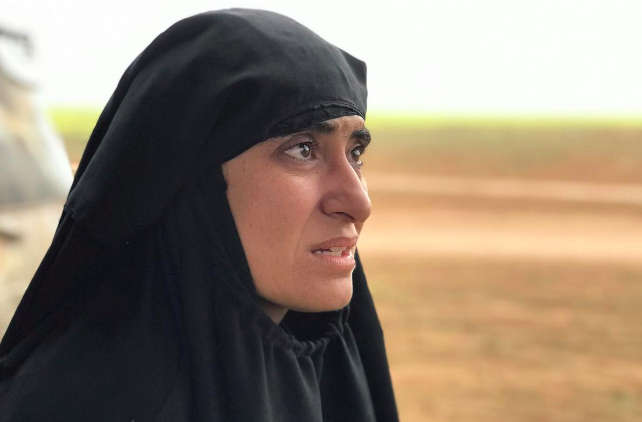
GENEVA (Reuters) – Around 20,000 Iraqis in Syria, including women and children who fled Islamic State’s last enclave, are expected to be sent home in weeks under an agreement with Baghdad, a senior official of the International Committee of the Red Cross said on Monday.
Thousands of people – many of them the wives of Islamic State fighters and their children – have streamed out of the besieged enclave at Baghouz over the past weeks, forcing the U.S.-backed Syrian Democratic Forces (SDF) to delay an assault to wipe out the last vestige of the jihadists’ territorial rule.
Most have gone to al-Hol in northeast Syria where some 65,000 people now live in an overflowing camp. Many are Iraqis who had fled after Islamic State lost territory in the neighboring country, fearing retribution from Shi’ite militias.
“Among the people who reached al-Hol camp you have a significant number of people who are of Iraqi origin. Figures are not official but probably we are talking about 20,000 people, including women and children,” Fabrizio Carboni, ICRC regional director for the Middle East, told Reuters in Geneva.
“The Iraqi government has expressed its will to bring those people back, but it’s obviously a challenging situation. Those people are considered as a security threat, so it means that they will have to go through a screening process,” he added.
There was “no official date” to his knowledge for the huge transfer, Carboni said. “But according to our understanding, it’s a matter of weeks or months,” he said.
Most are believed to be civilians, but they could include fighters, the ICRC said.
Iraq’s military said two weeks ago that the SDF had already handed 280 Iraqi and foreign detainees to Baghdad.
At least 900 “unaccompanied” children are among the displaced at al-Hol camp who come from Europe, Central Asia and southeast Asia, Carboni said.
The ICRC conducts tracing and collects messages to try to reunite families. Many have seen their parents killed, he said.
Governments, especially in Europe, are grappling with how to deal with hundreds of suspected militants and their families seeking to return from the combat zone, especially when the trauma of attacks claimed by Islamic State is still raw.
“Obviously our approach is mainly a humanitarian approach, we don’t ignore the security threats, or the political dimension of these returns,” Carboni said.
“We are aware it is a difficult issue especially in Europe but we believe that on humanitarian grounds, even if you look at this through a security angle, the solution goes through a return of those children and mothers,” he said.
Reporting by Stephanie Nebehay; Editing by Alison Williams




